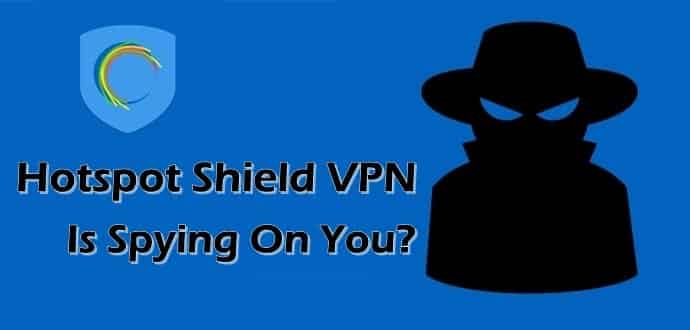Hotspot Shield VPN tracks their users’ activities, claims a privacy group
Who doesn’t need privacy? And with many of us spending long hours on the internet, online privacy and security becomes a must. That’s where VPN (Virtual Private Network) comes into play when it comes to bolstered security. A VPN can be used to access region-restricted websites, shield your browsing activity from prying eyes on public Wi-Fi, and much more. But, what happens when the VPN that you trust to keep your browsing activities private start snooping on you?
According to a 14-page complaint filed by the Center for Democracy & Technology (CDT), a US based non-profit advocacy group for digital rights, at the Federal Trade Commission, has accused one of the most popular VPN service provider, Hotspot Shield for violating its own “anonymous browsing” policy by interrupting and redirecting web traffic to partner websites, to enable targeted advertising.
The tool, produced by Hotspot Shield, has managed to attract around 500 million customers from around the world and claims that it keeps “no logs of your online activity or personal information.” It also distances itself from other “disreputable” free VPN services which “make their money tracking and selling their users’ activities.”
However, the CDT filing says, “Hotspot Shield’s description for its iOS and Android mobile applications declares a ‘no logs’ policy; however, its Privacy Policy, which covers and includes its Hotspot Shield services, describes more elaborate logging practices.”
In addition, the software is also accused of using JavaScript code to forcibly inject its own advertising into web pages being visited by its users.
“Hotspot Shield engages in logging practices around user connection data, beyond troubleshooting technical issues” by using a user’s location and IP addresses to “improve the service, or optimize advertisements displayed through the service,” the filing adds. Moreover,
“People often use VPNs because they do not trust the network they’re connected to, but they think less about whether they can trust the VPN service itself,” said Michelle De Mooy, director of CDT’s Privacy & Data Project. For many internet users, it’s difficult to fully understand what VPNs are doing with their browsing data. That makes clear and accurate disclosures and practices essential.”
She also added that the service “fails to live up to its promises or meet the reasonable expectations of its customers.”
However, Hotspot Shield has denied any wrongdoing. In a statement to ZDNet, David Gorodynasky, CEO of parent company AnchorFree, commented: “The information Hotspot Shield users provide to us is never associated with their online activities when they are using Hotspot Shield, we do not store user IP addresses and protect user personally identifiable information from both third parties and from ourselves.”
Adding further, Gorodynasky said: “While we commend the CDT for their dedication to protecting users’ privacy, we were surprised by these allegations and dismayed that the CDT did not contact us to discuss their concerns. AnchorFree prides itself on being transparent about its data practices and would be happy to engage in a discussion to clarify the facts and better understand the nature of the CDT’s concerns.”
Source: ZDNet

